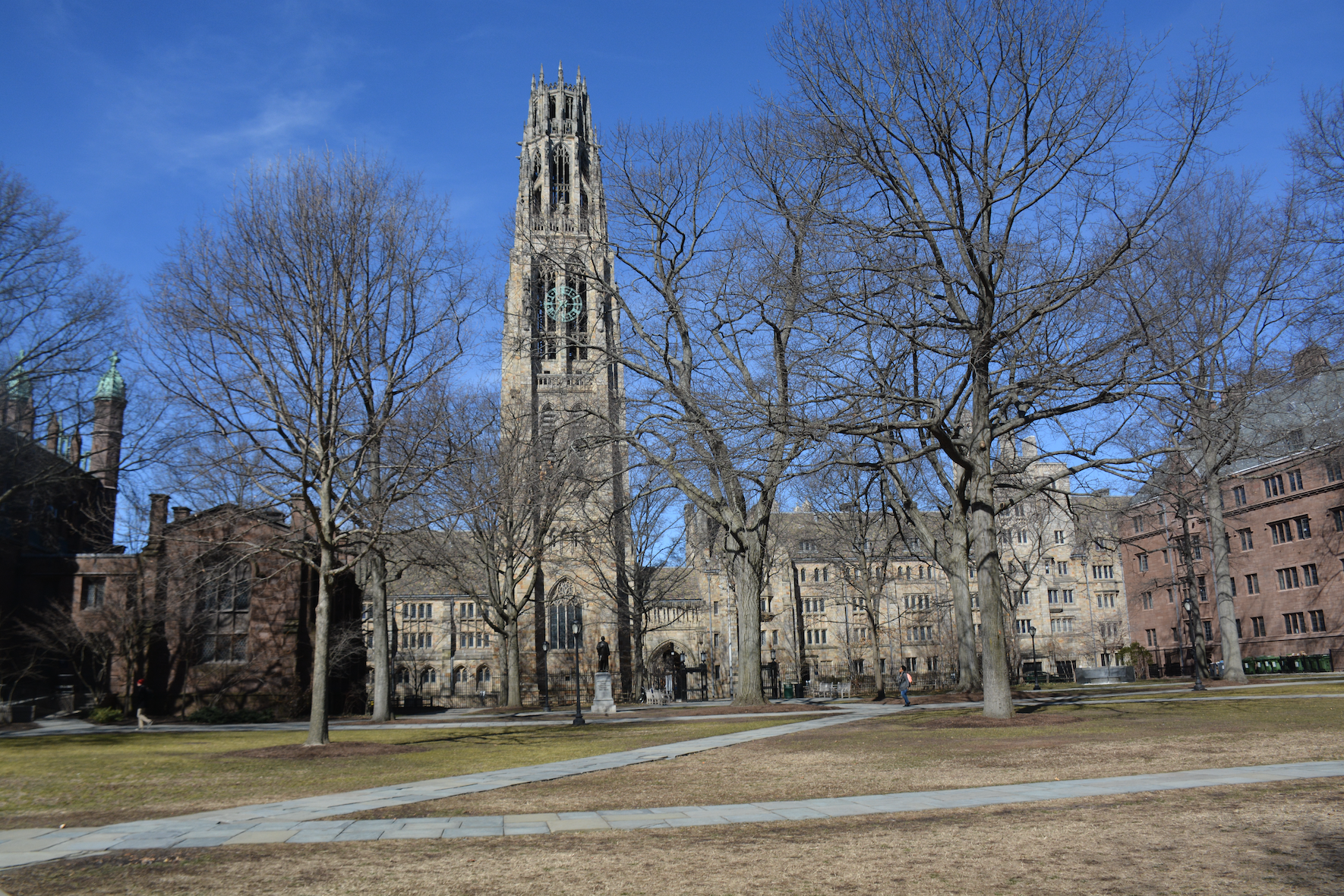
Yale Daily News
First-year students and sophomores enrolled remotely during either semester of this academic year can take two Yale Summer Session courses without paying tuition, according to a policy announced in July in an email from University President Peter Salovey. The policy, called COVID-19 Courses, gives students who did not have the chance to live on campus for the full 2020-21 year another chance to do so — while courses will be held online, the COVID-19 policy includes subsidies for on-campus housing.
As the summer approaches, however, advocates for Yale’s first-generation, low-income community questioned the equity of the policy, claiming that it contributes to the inaccessibility to summer academic opportunities faced by many FGLI students.
The Yale College Council is advocating for COVID-19 Courses eligibility to be expanded to all first-year and sophomore students, on the grounds that many of the students who received housing exemptions to remain on campus during either the spring or fall semester — and therefore would not qualify for the free courses — are those who would most meaningfully benefit from free summer credits. Additionally, the YCC has suggested that financial aid opportunities for YSS be expanded, arguing that Yale’s Summer Experience Award should permanently include funding for YSS courses and that YSS financial aid should be calculated based on a student’s expected family contribution.
“Many first-generation, low-income students on campus under a housing exemption did not have an alternative option; the requirements for effective learning were not met in a home environment,” said Ava Saylor ’24, a member of the YCC’s Summer Credits Task Force, which, according to Saylor, focuses on making summer credits more accessible to first years and sophomores who received housing exemptions. “These are the same students that typically do not have equitable access to summer courses in a normal year, much less during a year which has left a disproportionately-negative impact on the FGLI community,” Saylor said.
In response to student concerns, the YCC put forth a policy proposal asking for the Summer Experience Award to be expanded to include YSS courses, for YSS financial aid to be calculated according to expected family contribution, for first years and sophomores who received a housing exemption to be eligible for free YSS credits, for the technology fee for YSS courses for the summer of 2021 to be waived and for the COVID-19 Courses policy to be extended to remote juniors.
Dean of Yale Summer Session Jeanne Follansbee told the News that the intention behind the COVID-19 Courses, a Yale College policy, was to give students who enrolled remotely for one semester “the opportunity to have another on-campus experience.” Because students who received housing exemptions “got both semesters [on campus],” Follansbee said, they are ineligible for the summer accommodation.
But YCC Equity Chair Zoe Hsu ’24 said that many FGLI students did not feel they had a choice when it came to applying for housing exemptions, pointing to “experiences with homelessness, food insecurity, financial insecurity, unsafe home environments and time zone issues” as potential motivations for requesting campus housing for the full year.
“The pandemic has already limited the amount of summer experiences available, which makes these issues even more alarming,” said YCC Health and COVID-19 Policy Chair Bayan Galal ’23. “The range of internships, fellowships or other programs in the summer, as well as travel or study abroad options, have all been restricted because of the pandemic, and this makes Yale Summer Session classes even more of an essential option. For this reason, classes should only become more accessible to all students, not less.”
Hsu, an FGLI student who received a housing exemption for the spring semester, said that she was “astounded” by both the cost of YSS courses and the limited opportunities for financial aid. Hsu noted that she would not be able to afford to pay for summer classes even by working a job during the spring semester.
Hsu was not the only FGLI student whose summer plans were influenced by the summer credit policy.
“I was given an exception to stay on campus for the spring term, and one of the reasons why I considered staying at home was because I wanted the summer credits,” Mary He ’24, who is also a member of the Summer Credits Task Force, said. “However, I realized that I should not have to decide between a productive and positive learning environment and being able to afford to take summer classes because I am a first-generation and low-income student.”
Saylor, who received a spring housing exemption, similarly told the News that the policy also influenced her summer plans. She added that she “would have loved the opportunity to get ahead and take interesting courses over the summer.”
Still, Follansbee said that “a lot of students don’t know all of the funding that’s available for the summer, especially the funding for Summer Sessions,” pointing to the availability of Summer Pell Grants and the application fee waiver for students who receive a certain amount of financial aid, in addition to existing financial aid policies which allow students who receive financial aid to receive 50 percent off of the tuition for summer courses.
“If you put together all of the financial resources available to support Summer Session, plus resources that support an internship, a study abroad program and then all of the fellowship support available, students who are low income or students who are on financial aid have a wide array of resources available to fund a range of summer activities,” Follansbee said.
However, according to former Co-President of Yale FGLI Advocacy Movement Nick Randos ’23, the issue of inaccessibility to summer opportunities for FGLI students extends beyond Yale Summer Session. Randos noted that “current funding sources, like the SEA are not enough to cover living in common internship hubs,” adding that it creates “a tough choice between building your resume and making money to support your family” when expenses for summer experiences are not fully funded.
“As FGLI students, we are used to finding innovative ways to make a little go a long way,” Randos said. “But this is something we’ve been doing all of our lives and at a place as well-endowed as Yale and one that has pledged to support its FGLI students, this shouldn’t have to be the reality.”
Financial assistance opportunities for YSS are available on the program’s website.
Lucy Hodgman | lucy.hodgman@yale.edu










